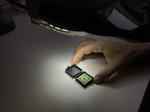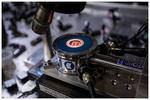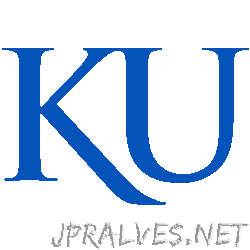Other

“Quantum physicists at the University of Copenhagen are reporting an international achievement for Denmark in the field of quantum technology. By simultaneously operating multiple spin qubits on the same quantum chip, they surmounted a key obstacle on the road to …

“Researchers from University of Copenhagen have developed a new technique that keeps quantum bits of light stable at room temperature instead of only working at -270 degrees. Their discovery saves power and money and is a breakthrough in quantum research …

“Researchers from University of Copenhagen have investigated what happened to a specific kind of plasma – the first matter ever to be present - during the first microsecond of Big Bang. Their findings provide a piece of the puzzle to the evolution …

“University of Copenhagen researchers have advanced their quantum technology to such a degree that classical computing technology can no longer keep up. They have developed a chip that, with financial backing, could be scaled up and used to build the …

“A University of Copenhagen chemist has invented a cutting-edge green technology that uses CO2 to convert seawater into drinking water — within minutes. The plan is to use the desalination technology to replace electricity with CO2 and use it in survival …

“In physics, it is essential to be able to show a theoretical assumption in actual, physical experiments. For more than a hundred years, physicists have been aware of the link between the concepts of disorder in a system, and information …

“University of Copenhagen physicists, as part of the University and Microsoft collaboration focused on topological quantum computing, may have unloosed a Gordian knot in quantum computer development. In partnership with researchers from University of Chicago, ETH Zurich, Weizmann Institute of …
News Quantum research unifies two ideas offering an alternative route to topological superconductivity

“Researchers from University of Copenhagen have discovered a new way of developing topological superconductivity that may provide a useful route toward the use of Majorana zero modes as the foundation of qubits for quantum information. A pencil shaped semiconductor, measuring …

“Entanglement, a powerful form of correlation among quantum systems, is an important resource for quantum computing. Researchers from the Quantum Optomechanics group at the Niels Bohr Institute, University of Copenhagen, recently entangled two laser beams through bouncing them off the …

“University of Copenhagen researchers have developed a nanocomponent that emits light particles carrying quantum information. Less than one-tenth the width of a human hair, the miniscule component makes it possible to scale up and could ultimately reach the capabilities required …

